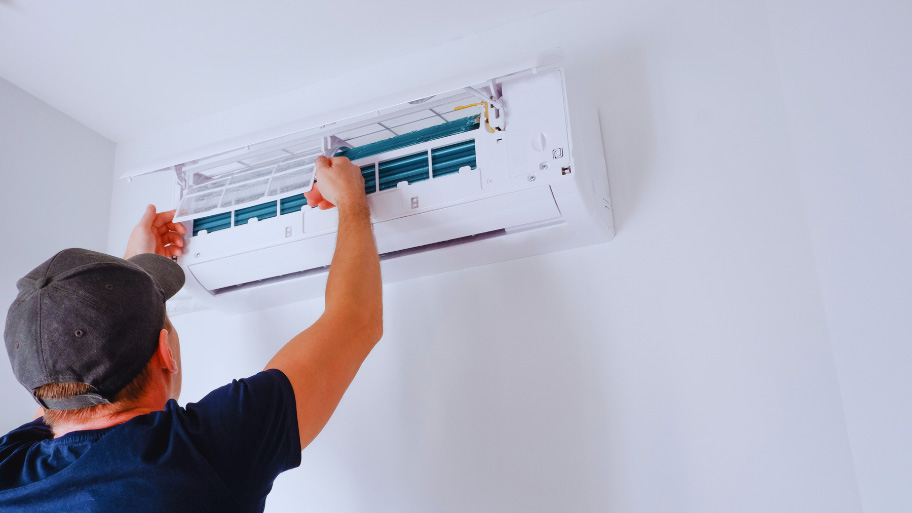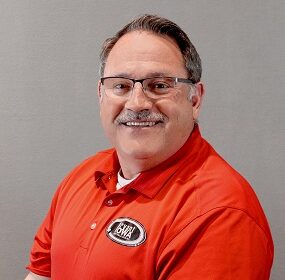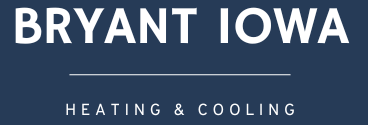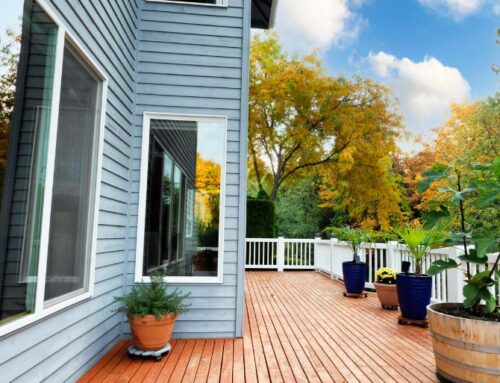In Iowa, the extreme weather—from harsh winters to humid summers—puts a unique strain on HVAC systems. This guide identifies the most common HVAC problems specific to these conditions, like agricultural dust clogging filters and systems failing during sudden temperature changes.
More importantly, it offers practical maintenance tips and effective solutions to fix these problems quickly, preventing costly repairs and ensuring your HVAC runs efficiently all year round. Stay comfortable in your Iowa home with our expert advice.
Comprehensive Guide to Common HVAC Problems and Fixes
Explore solutions to common HVAC challenges in Iowa, from dirty filters to mechanical failures, ensuring optimal system performance through each season.
Living in Iowa, where agriculture stirs up considerable dust and pollen, keeping your HVAC filters clean isn’t just routine—it’s essential for both your system’s efficiency and your indoor air quality. Here’s how you can effectively manage this common issue:
Monthly Checks: Given the dusty conditions, especially during planting and harvesting, checking your filters monthly is crucial. Typically, you should replace them every three months, but during Iowa’s peak agricultural activity, you might need to do it more often to maintain optimal airflow and system efficiency.
Selecting the Right Filter: While fiberglass filters are budget-friendly, they don’t perform well against Iowa’s finer particulates. Pleated filters, although more costly upfront, are a better choice for capturing those small particles and can be a cost-effective investment in the long run due to energy savings and reduced system strain.
Understanding MERV Ratings: Think of a MERV rating as a filter’s resume—showing just how fine the particles it can snag from your air are. In Iowa, with its blend of agricultural dust and seasonal allergens, a filter’s ability to purify air while maintaining airflow is crucial. Filters with a MERV rating from 8 to 13 are your best bet. They are just right for Iowa homes, capturing pesky particles effectively without slowing down your HVAC system’s airflow.
Consequences of Negligence: Ignoring filter maintenance can lead to decreased HVAC efficiency, higher energy bills, and deteriorating air quality. Key indicators that it’s time for a change include visible dust buildup, reduced airflow, and an increase in your energy expenses.
Regularly maintaining your HVAC filters is a straightforward but vital practice to ensure your system runs smoothly. This simple step can significantly improve both your home’s comfort and the longevity of your HVAC unit amidst Iowa’s challenging climate.
2. Inconsistent Airflow and Temperature Distribution
Iowa’s dramatic climate swings—from biting cold winters to sweltering summers—make balanced airflow and temperature control crucial for comfort. If some rooms are too hot while others feel like an icebox, here are straightforward steps to achieve consistent temperatures throughout your home:
Clear the Air Path: Begin with the basics—make sure nothing is blocking your vents, such as furniture, drapes, or carpets. This simple action can frequently resolve many airflow issues without the need for additional interventions.
Evaluate Your Ductwork: If temperature imbalances persist, it might be time to look at your ductwork. Aging or poorly designed ducts can hinder efficient air movement. A professional evaluation can identify if modifications or repairs are necessary to optimize air delivery.
Seal and Insulate Ducts: Leaks in ductwork can lead to significant temperature discrepancies, particularly in unconditioned spaces like attics. Sealing these leaks and ensuring proper insulation can greatly improve comfort and efficiency.
Consider Zoning Systems: Installing zoning systems can solve the problem of varying temperature needs in different areas of your home. These systems allow you to customize settings per zone, ensuring that everyone is comfortable.
Maintain Regularly: Regular maintenance remains key. Annual inspections and cleanings can preempt issues with airflow and temperature, keeping your system efficient and effective year-round.
By taking charge of these elements, you can make every space in your house as warm or as cool as you prefer. This strategy not only relieves current discomfort but also enhances the durability and performance of your HVAC system, ideally suiting it to Iowa’s distinctive weather patterns.
3. Mechanical Failures: From Pilot Lights to Blown Fuses
The harsh climate of Iowa can be tough on HVAC systems, leading to mechanical failures that can disrupt your comfort. Here’s how to address some of the most common mechanical issues:
Pilot Light Issues: During Iowa’s freezing winters, a defective pilot light could mean no heat when you need it most. If your pilot light often extinguishes or struggles to ignite, initially check for any drafts that might be affecting it. Should the problem continue, it’s likely caused by a malfunctioning thermocouple or a blockage in the pilot orifice. These are issues that a professional can usually resolve quickly and efficiently.
Tripped Breakers and Blown Fuses: Summer storms and winter blizzards can lead to power fluctuations that trip breakers or blow fuses. Always check your circuit breaker first if your HVAC stops working. If breakers frequently trip or fuses blow, it’s a sign that your system is overworking or has an electrical issue needing professional attention.
Thermostat Malfunctions: Thermostats are the brains of your HVAC system. If temperatures in your home don’t match the settings, first check if your thermostat is correctly calibrated and not influenced by direct sunlight or drafts. Sometimes, simply replacing batteries or resetting the thermostat can fix the issue. If problems continue, it might need replacing or repositioning.
When to Call a Professional:
Tackling HVAC issues on your own can be rewarding, but it’s crucial to know when to seek professional help:
Recurring Issues with Pilot Lights or Frequent Breaker Trips: These could be signs of underlying mechanical problems that require expert diagnosis and repair.
Electrical Concerns: Any issues related to your HVAC’s electrical system, such as faulty wiring or problematic connections, are best handled by a professional. This ensures safety and prevents potential hazards.
Unresolved Thermostat Problems: If your thermostat continues to malfunction after trying to recalibrate it or change its batteries, it’s time to call in an expert. Incorrect thermostat function can lead to excessive heating or cooling, driving up your energy bills unnecessarily.
Being proactive about when to DIY and when to call in the experts helps keep your HVAC system efficient and reliable, ready to face Iowa’s varied climate conditions. This approach not only keeps your home comfortable but also helps prolong the lifespan of your system by addressing issues before they escalate.
4. Refrigerant and Water Leaks
In the varied climate of Iowa, from freezing winters to hot summers, HVAC systems can develop leaks that lead to inefficient operation and potential damage. Understanding how to identify and address these leaks is crucial:
Identifying Leaks: Refrigerant leaks may manifest as ice buildup on your air conditioner’s coils or reduced cooling efficiency. Water leaks, on the other hand, might appear as unexpected moisture or pooling around your HVAC unit. In both cases, a drop in performance is a common sign.
Implications of Leaks: Neglecting to address refrigerant leaks can strain your HVAC system, leading to higher utility bills and premature wear and tear. Similarly, unchecked water leaks may result in mold formation and damage to your home’s structure, which can be harmful to your health and lead to expensive repairs.
DIY Checks: For water leaks, regularly inspect your HVAC unit for any signs of moisture or pooling water. Refrigerant leaks are harder to detect and usually require a professional, but you can look for oil residue around the HVAC connections as a preliminary check.
Professional Fixes: If you suspect a refrigerant leak, it’s essential to call in a certified technician who can safely handle and replenish the system’s refrigerant. Water leaks might require duct sealing, pipe insulation, or even replacement of parts of your system to ensure it remains watertight.
Addressing refrigerant and water leaks promptly ensures your HVAC system continues to operate efficiently, even under Iowa’s challenging climate conditions. Scheduling regular inspections and seeking timely professional help are essential practices that help avert significant damage, thus ensuring your home remains comfortable and secure all year round.
5. Coil Problems: Dirty, Frozen, or Malfunctioning
In the varied climate of Iowa, from freezing winters to hot summers, HVAC systems can develop leaks that lead to inefficient operation and potential damage. Understanding how to identify and address these leaks is crucial:
The Critical Role of Clean Coils: Your HVAC’s coils are central to the system’s ability to exchange heat efficiently. Keeping these coils clean is crucial as any accumulation of dirt or debris acts like insulation, reducing their effectiveness. This not only forces your system to exert more effort, increasing wear and tear, but also drives up your energy bills as it struggles to maintain the desired temperature.
Proactive Care for HVAC Coils:
Annual Cleaning: It’s essential to clean your HVAC coils at least once a year to avoid dirt accumulation. Given Iowa’s heavy pollen and agricultural dust, consider scheduling additional cleanings during peak seasons to ensure optimal performance.
Clear Surroundings: Consistently check the space around your HVAC’s outdoor unit. Clearing away leaves, dirt, and other debris is crucial to prevent blockages that can restrict airflow and diminish the efficiency of your coils.
Dealing with Frozen Coils:
Improving Airflow: Ensure that filters are changed and vents are not blocked to maintain proper airflow. Restricted airflow can cause coils to freeze.
Check Refrigerant Levels: Low refrigerant levels can also lead to frozen coils. If you suspect this is the case, it’s important to contact a professional to handle refrigerant issues safely.
Recognizing Signs of Malfunction:
Inconsistent Temperatures: If your HVAC is not cooling or heating as it should, it could be a sign of coil problems.
Visible Frost or Ice: On the coils themselves, this is a direct indicator of issues that need immediate attention.
Deciding to Call the Pros:
Handling routine upkeep at home is doable, but some issues are best left to the pros. For specialized tasks like fixing refrigerant leaks or replacing coils, always reach out to certified HVAC technicians. They ensure not only the safety of your system but also enhance its long-term performance.
By keeping an eye on the condition of your coils and addressing issues promptly, you can maintain the effectiveness of your HVAC system, reduce energy costs, and extend its lifespan. This is particularly crucial in Iowa, where the weather can be unforgiving, and the demands on HVAC systems are constant.
Preventative Maintenance and Professional Help in Iowa
Regular Maintenance Tips:
By keeping an eye on the condition of your coils and addressing issues promptly, you can maintain the effectiveness of your HVAC system, reduce energy costs, and extend its lifespan. This is particularly crucial in Iowa, where the weather can be unforgiving, and the demands on HVAC systems are constant.
Spring and Fall Tune-Ups: Schedule professional inspections during the spring and fall. This helps prepare your system for the demanding summer and winter months, ensuring it runs smoothly when you need it most.
Cleaning Components: Regularly clean or replace air filters, and make sure that condensation drains are clear to prevent water damage and mold growth.
Sealing and Insulation: Before the onset of extreme weather, check that your home’s insulation and duct sealing are adequate to maintain efficiency and comfort.
When to Call a Professional in Iowa:
In Ankeny, IA, tackling minor repairs yourself can be a great way to save money, but some scenarios, particularly given our unique local climate, definitely call for professional expertise.
System Inefficiencies: If your HVAC is not keeping up with the desired temperature settings or is cycling more often than usual, it’s advisable to consult with the skilled team at Bryant Iowa Heating & Cooling.
Unusual Noises or Odors: Any odd sounds or smells coming from your HVAC system are warning signs that should not be ignored. These could signify underlying issues that require immediate attention from a professional.
Weather-related Inspections: The extreme weather in Iowa can take a toll on HVAC systems. It’s wise to have your system inspected by professionals after significant weather events to ensure any potential damage is addressed promptly, avoiding more severe problems down the line.
Schedule Your HVAC Check-Up Today!
Don’t wait for a breakdown to think about your HVAC system’s health. Residents of Ankeny, IA, and the surrounding areas can contact Bryant Iowa Heating & Cooling today to schedule a thorough inspection and tune-up to enhance your system’s efficiency and extend its life. Regular maintenance by our certified technicians can save you money in the long run and keep your home comfortable no matter the season.






